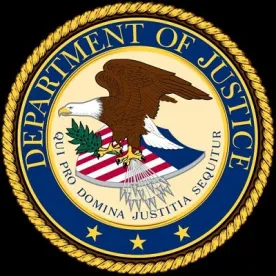The ongoing battle over Supplemental Environmental Projects (SEPs) – environmentally-beneficial, beyond-compliance projects that defendants agree to undertake for potential penalty mitigation in settlement of environmental enforcement actions – heated up last week when an environmental group sued the attorney general and others for violating the Administrative Procedure Act (APA) in issuing a legal memorandum effectively halting the projects.
The last time we discussed SEPs, the United States Department of Justice (DOJ) was challenging a separate agreement entered into between two private parties – that were also parties to a consent decree with the DOJ – that required one of those parties to undertake projects akin to SEPs. That matter is still being briefed (for additional background on DOJ’s new stance on SEPs, see our May 2020 post and September 2019 post).
The United States Environmental Protection Agency (EPA) has supported SEPs since 1984, when the agency issued its first SEP policy. SEPs have enjoyed widespread support from communities and regulated entities alike. But over the past several years, the DOJ has expressed increasing skepticism over the propriety of SEPs, culminating in the issuance on March 12, 2020, of a memorandum entitled, “Supplemental Environmental Projects (“SEPs”) in Civil Settlements with Private Defendants” (SEP Prohibition Memo), prohibiting SEPs in all but a small class of diesel emission reduction projects in mobile source matters. The SEP Prohibition Memo posits that SEPs represent a violation of the Miscellaneous Receipts Act, which provides that a government official “receiving money for the Government from any source shall deposit that money with the Treasury,” subject to certain exceptions.
On Oct. 8, the Conservation Law Foundation (CLF) filed a lawsuit in the United States District Court of Massachusetts (Conservation Law Foundation v. William Barr et al., Case No. 1:20-cv-11827), seeking to vacate the SEP Prohibition Memo and enjoin DOJ and EPA from implementing that policy – as an arbitrary and capricious violation of the APA. In challenging the SEP Prohibition Memo, CLF noted that the EPA and other agencies have long relied on the rationale that because no penalty is owed to the government until a settlement is finalized, including a SEP in settlement agreement does not trade penalties for projects.
The CLF notes that pollution disproportionately harms low income and minority communities, and SEPs have been a tool for reducing those impacts. Jeffrey Clark, the current assistant attorney general of DOJ’s Environment and Natural Resource Division (ENRD) and author of the SEP Prohibition Memo, argues in the memo that despite the safeguards contained within EPA’s SEP policy, SEPs still divert funds that otherwise would have gone to the Treasury to projects benefiting third parties, in violation of the law.
CLF, in its complaint, argues that EPA had implemented robust protocols, through its SEP Policy, to ensure that SEPs met certain criteria to avoid running afoul of the Miscellaneous Receipts Act. That policy, says CLF, has been blessed by the Office of Legal Counsel, as well as by the many courts that have entered consent decrees including SEPs. According to CLF, by misreading the plain language of the Miscellaneous Receipts Act and ignoring the decades of precedent supporting the SEP Policy, DOJ acted arbitrarily and capriciously – and in a manner likely to disproportionately harm low-income and minority communities.
If the upcoming election results in a change in administration, a new attorney general could potentially withdraw the SEP Prohibition Memo and perhaps moot the CLF case. In the meantime, however, the SEP Prohibition Memo will continue to bar SEPs in settlements, until withdrawn or deemed illegal.




 />i
/>i

